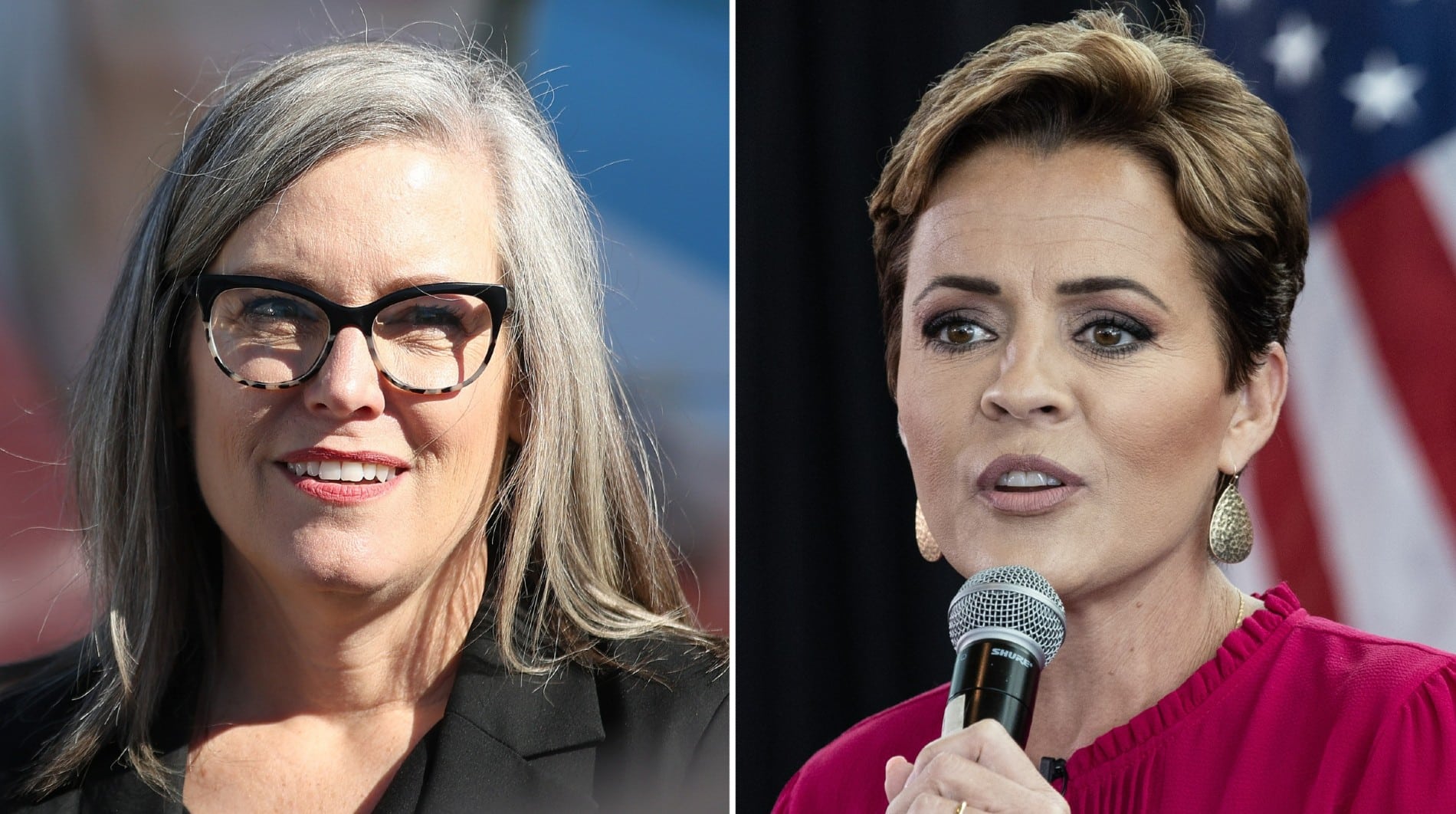OPINION: This article may contain commentary which reflects the author's opinion.
Maricopa County Superior Court Judge Peter Thompson denied a request from Arizona Democrat Gov.-elect Katie Hobbs seeking sanctions against her gubernatorial race opponent, Kari Lake. However, the judge did award Hobbs just over $33,000 to cover costs for retaining expert witnesses during a two-day trial brought on by Lake, who challenged the results of November’s gubernatorial election.
“After the litigation, Hobbs filed a request to the court seeking $36,990 in attorneys’ fees and expenses paid during a two-day trial, as well as sanctions against Lake. The court denied Hobbs’ request for sanctions against Lake, saying the claims presented in litigation were not groundless or brought in bad faith. But costs associated with fees of witnesses were covered, for the most part. Hobbs requested reimbursement of $5,900 for an expert who was retained and who testified during the court hearing,” Fox News reported.
“She also filed a separate request for expert witness fees in the amount of $22,451 and an additional $4,689.50 for the reimbursement of a person designated to inspect the ballots. The ballot inspector’s compensation, according to court documents, was charged at a rate of $565 per hour for 8.3 hours. The court agreed to reimburse the $33,040.50 to Hobbs. It also ordered that the amount accrue an annual interest of 7.5% until the money is paid in full,” the report added.
Lake announced over the weekend that she will file an appeal after a judge rejected her claims in a lawsuit that sought to overturn her election loss to Hobbs by around 17,000 votes.
Lake tweeted Saturday morning: “This Judge did not rule in our favor. However, for the sake of restoring faith and honesty in our elections, I will appeal his ruling.”
Judge Thompson wrote in his decision: “Every one of Plaintiff’s witnesses — and for that matter, Defendants’ witnesses as well — was asked about any personal knowledge of both intentional misconduct and intentional misconduct directed to impact the 2022 General Election. Every single witness before the Court disclaimed any personal knowledge of such misconduct. The Court cannot accept speculation or conjecture in place of clear and convincing evidence.”
Over 200 people submitted statements to the court detailing their frustrating experiences trying to vote on Election Day in Maricopa County. However, Judge Thompson stated that many of those voters were still able to cast their ballots.
“This Court acknowledges the anger and frustration of voters who were subjected to inconvenience and confusion at voter centers as technical problems arose during the 2022 General Election,” Thompson wrote.
The AZ Mirror reported:
Lake relied on witnesses like cybersecurity expert Clay Parikh, who testified that issues with ballot-on-demand printers on Election Day were caused by a 19-inch ballot image being printed onto 20-inch paper. He opined that it was done intentionally and could not have happened by accident.
Maricopa County Co-Elections Director Scott Jarrett later explained that the smaller printing size happened after other printer problems had already cropped up on Election Day when techs changed the settings to “fit to print” while they were troubleshooting. Jarrett said it only happened at three voting centers and impacted 1,300 ballots, though Parikh claimed that he found the missized ballots in batches he inspected from six voting centers.
“If the ballot definitions (sizes) were changed, it stands to reason that every ballot for that particular definition printed on every machine so affected would be printed incorrectly,” Thompson wrote. “As Plaintiff’s next witness indicates, that was not the case on Election Day. In either event, Mr. Parikh acknowledged that he had no personal knowledge of any intent behind what he believes to be the error.”
Judge Thompson said that Lake’s team did not provide evidence proving voters were turned away or refused ballots on Election Day.
“No election in Arizona has ever been set aside, no result modified, because of a statistical estimate,” Thompson wrote, regarding Baris’ testimony. “Election contests are decided by votes, not by polling responses, and the Court has found no authority suggesting that exit polling ought to be used in this manner.”
“Plaintiff has no free-standing right to challenge election results based upon what Plaintiff believes – rightly or wrongly – went awry on Election Day,” Thompson wrote. “She must, as a matter of law, prove a ground that the legislature has provided as a basis for challenging an election.”
